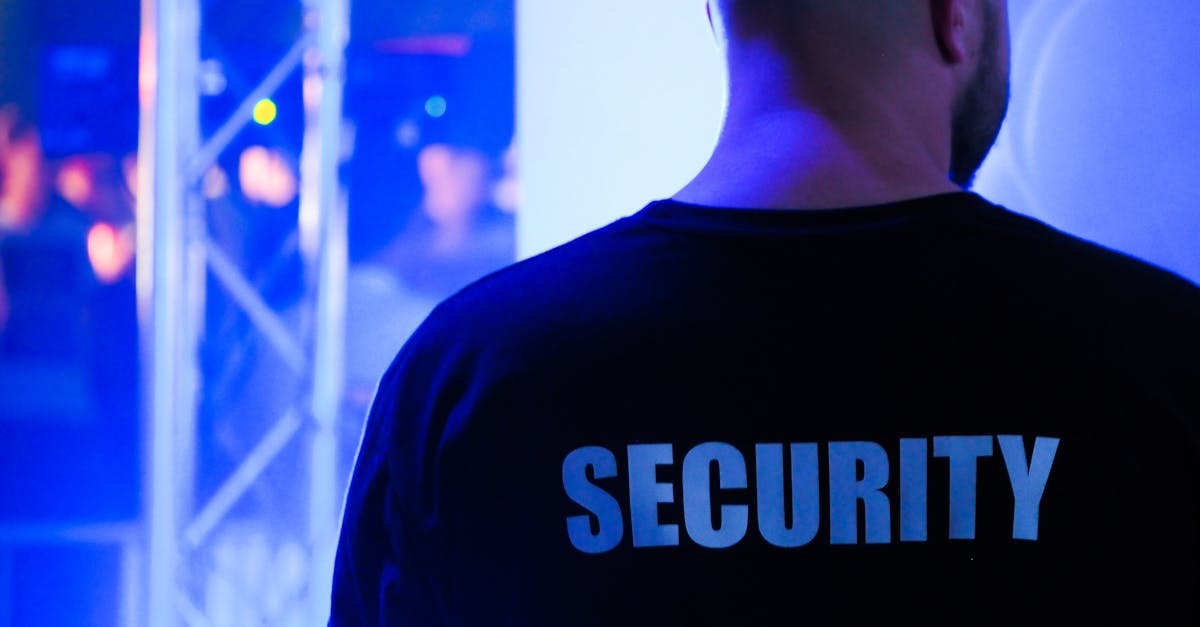
Nightlife establishments like bars, nightclubs, and lounges are buzzing hubs of entertainment, relaxation, and socialization. However, with the excitement that comes with these environments, there are certain risks involved—making nightlife security a critical aspect of any thriving venue. Effective security not only ensures a safe and enjoyable experience for guests but also helps maintain the reputation and success of the establishment.
In this blog post, we’ll dive into the significance of nightlife security, the various measures involved, and how a well-structured security plan can elevate the guest experience.
Why Nightlife Security Matters
Nightlife venues often host large crowds, varying in size and demographics. While the atmosphere is often celebratory, it can sometimes lead to conflicts, intoxication, or unruly behavior. Proper security is necessary to prevent:
Violence and Altercations: Alcohol consumption can heighten aggression or lead to misunderstandings, making physical confrontations more likely. Effective security can de-escalate situations before they escalate.
Theft and Vandalism: With crowds gathering in tight spaces, there is an increased chance of personal items being lost, stolen, or damaged. Security personnel help deter such actions and respond swiftly if incidents occur.
Overcrowding: Unchecked overcrowding can create hazardous conditions and even violate local fire safety codes. Security can ensure that the crowd remains manageable and that fire exits are clear.
Health and Safety Compliance: Security teams help enforce rules related to underage drinking, smoking, or other regulatory guidelines. They can also provide emergency responses in case of health-related incidents, like an intoxicated patron needing medical assistance.
Key Elements of Nightlife Security
To provide comprehensive protection, nightlife security involves a combination of physical and procedural measures. Here are the key elements:
Well-Trained Security Personnel - Having professional, well-trained security staff is essential. This team should be equipped to handle everything from crowd management to conflict resolution. Training should include:
- De-escalation tactics: Knowing how to defuse a situation before it becomes violent.
- First aid: Being able to address medical emergencies.
- Surveillance: Monitoring suspicious activity using CCTV or roving patrols.
- Physical security: Handling physical confrontations when necessary while adhering to legal and ethical standards.
Surveillance Systems - Surveillance cameras are indispensable in the nightlife security setup. Cameras not only monitor entrances, exits, and common areas, but they also provide documentation in case of disputes or incidents. In addition to CCTV, security can use body cameras to record interactions between security personnel and patrons for transparency and accountability.
Access Control - Access control is vital for ensuring that only authorized individuals enter the venue. This can be achieved through:
- ID checks: Ensuring patrons are of legal drinking age.
- Bouncers: Trained security personnel stationed at entrances to enforce dress codes, perform bag checks, and monitor for intoxication or disruptive behavior.
- Guest Lists: At exclusive events, guest lists can ensure that only invited individuals are allowed access.
Crowd Management - Crowd management is an essential part of nightlife security, especially during peak hours or special events. A well-managed crowd reduces the likelihood of accidents, fights, or overwhelming security. Measures include:
- Queue management: Using barriers and ropes to manage lines and maintain order at the entrance.
- Event staff: Personnel placed throughout the venue to monitor patrons and maintain a calm environment.
- Clear signage: Informing guests of exits, bathrooms, and emergency procedures to avoid confusion during emergencies.
Emergency Protocols - Nightlife venues should have clear emergency protocols in place for situations like fires, medical emergencies, or disturbances. These protocols should be communicated to both staff and patrons to ensure quick and coordinated action. Regular drills and rehearsals can prepare security teams for the unexpected.
Intoxication Management - One of the primary challenges in nightlife security is managing intoxicated guests. Over-serving alcohol can lead to disruptive behavior, accidents, or even legal ramifications. Bouncers and security personnel are trained to recognize the signs of intoxication and act accordingly, whether that means cutting off drink service or escorting the individual off the premises.
Technology in Nightlife Security
In recent years, technology has played a significant role in improving nightlife security. New advancements have made it easier to monitor, communicate, and manage risks in real-time. Some key tech tools include:
- Facial recognition: Some venues are starting to adopt facial recognition systems to identify known troublemakers or banned patrons.
- Smartphone apps: Venues can offer patrons a way to report issues or emergencies through their smartphones. These apps can also be used for guest list management or ticket scanning.
- Crowd density tracking: Advanced algorithms and sensors are now being used to monitor crowd density in real time, allowing security teams to respond before an area becomes dangerously crowded.
The Role of Customer Service in Security
While security is about protecting patrons and property, it's equally important to maintain a positive experience. The most successful security personnel balance firmness with customer service. This means being approachable and polite while still maintaining authority. Security staff should view themselves not just as enforcers but as part of the venue’s overall hospitality experience.
Conclusion
Nightlife security is more than just a precaution—it's a vital element in ensuring a safe and enjoyable atmosphere for both patrons and staff. By investing in well-trained personnel, technology, crowd management, and emergency preparedness, venues can mitigate risks and provide a secure environment where everyone can have a great time. Whether you’re managing a bustling nightclub or a cozy lounge, effective nightlife security is the backbone that supports a memorable and safe night out.

Rate This Blog - Share Comments Below
0 COMMENT(S)